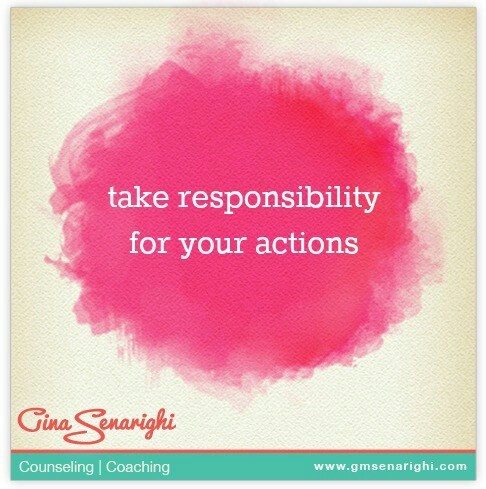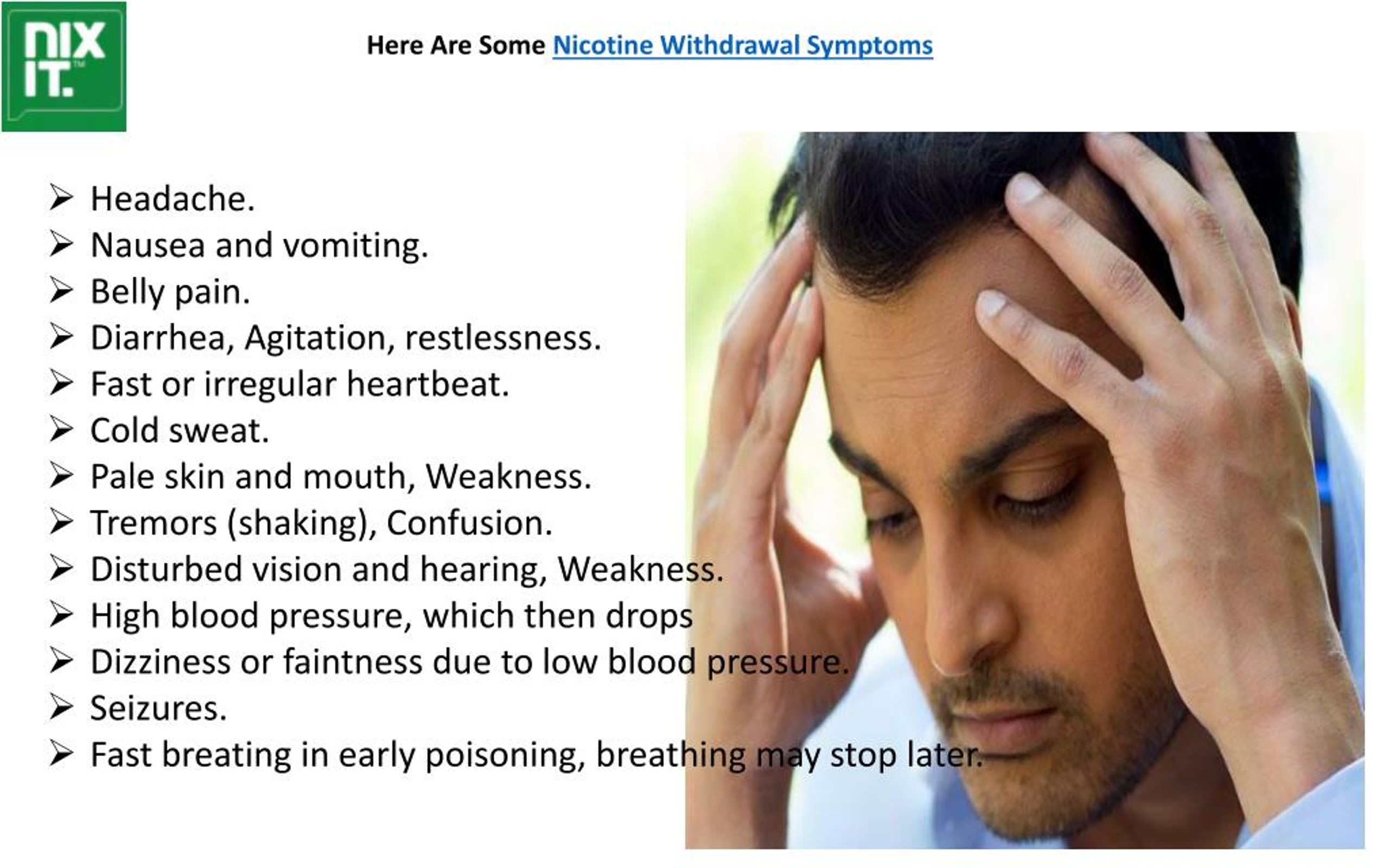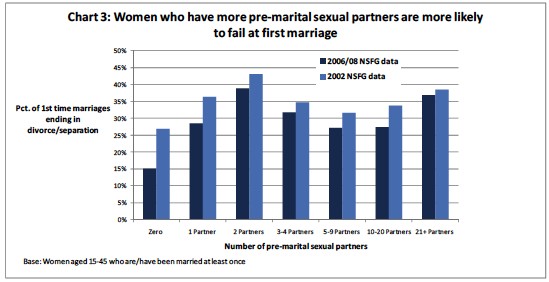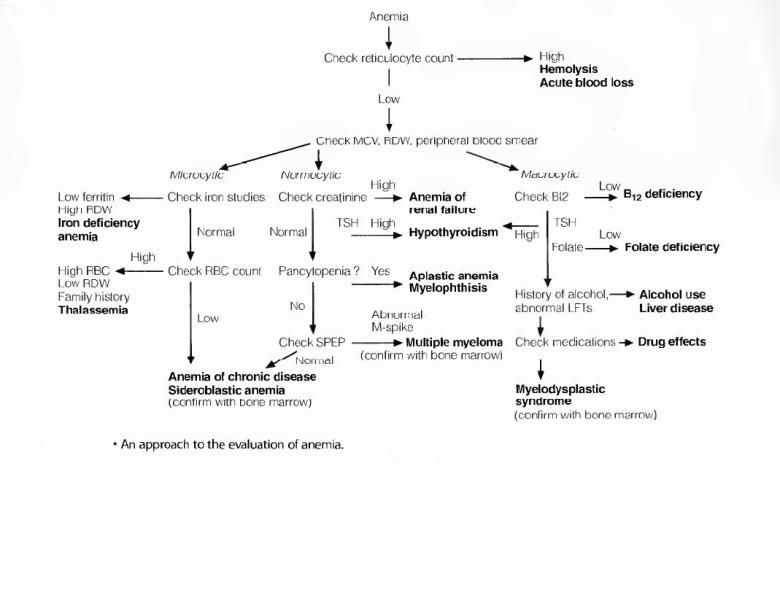How to take responsibility for your actions
What Does It Mean to Take Responsibility for Your Actions At Work?
Today’s workplace is arguably more interconnected than ever. What you do may not only affect your own productivity, performance, and success, but your coworkers, teammates, bosses, customers, and so forth. For this reason, it is imperative that you take responsibility for your actions and maintain a high level of personal accountability even in the face of failure.
Is it easy to do? Of course not.
Is it worth it? Absolutely.
In the following article, you will find what it means to take responsibility for your actions, examples of taking responsibility at work, and the key factors that impact one’s likelihood of doing so.
What Does It Mean To Take Responsibility for Your Actions?Taking responsibility for your actions requires the realization that you play a part in every situation or experience and therefore, have some degree of responsibility over the outcomes or consequences. You may have heard it referred to as accountability. It means that your first reaction when a mistake is made or a conflict arises, isn’t to blame others, make excuses, twist the facts, or flat out lie. Instead, you swiftly acknowledge there is a problem, identify your role in it, and implement an action plan to minimize (or entirely eliminate) the chances of it happening again.
Examples of Taking Responsibility for Your Actions
As one Forbes author pointed out, someone who takes responsibility for their actions is an accountable individual. Here is what that may look like in action on the job:
- You recognize and own up to your part of what is occurring
- If your message is hurtful to someone, you are willing to examine how your communication may have been damaging
- You don't blame others when you're at fault
- You don't make excuses for why things are happening
- You don't pawn off all the responsibility (or all the failure) onto your team or subordinate
- If you continually miss deadlines or essential project parameters, you don't pretend that it is all out of your control
- If your employee or team is failing, you don't stick your head in the sand and stay in denial - you proactively do something about it
- If your relationships are faltering, you’re open to seeing how you’re contributing to (and even exacerbating) the challenges and conflict
What Makes Someone Take Responsibility for Their Actions?
As Martin Luther King Jr. stated in a 1953 radio address, “One of the most common tendencies of human nature is that of placing responsibility on some external agency for mistakes we have made. We are forever attempting to find some scapegoat on which we cast responsibility for our actions.”
stated in a 1953 radio address, “One of the most common tendencies of human nature is that of placing responsibility on some external agency for mistakes we have made. We are forever attempting to find some scapegoat on which we cast responsibility for our actions.”
So, what exactly would make someone take responsibility for their actions at work? In an article for Berkley’s Greater Good Magazine that cross-referenced a number of studies it was found that “when you believe that your behavior can change, you are more likely to be willing to admit responsibility. A big reason why you are able to admit fault is that you recognize that once you admit what you have done wrong, you can work to make it better, and so you are not threatened by admitting mistakes. People who do not believe that they can change are stressed by admitting their mistakes, because they believe that those mistakes say something fundamental about who they are as a person.”
This highlights the importance of non-judgemental team culture and a relationship of trust with one’s direct leader when it comes to taking responsibility for your actions. If those things do not exist, it is not surprising if you are stressed, anxious, or fearful of taking responsibility for your actions as you assume ridicule, hostility, or even disciplinary action will follow. On the other hand, when your team’s culture is non-judgemental and everyone, including your leader, has your best interests at heart, taking responsibility for your actions actually becomes a valuable learning experience that you can move on from.
If those things do not exist, it is not surprising if you are stressed, anxious, or fearful of taking responsibility for your actions as you assume ridicule, hostility, or even disciplinary action will follow. On the other hand, when your team’s culture is non-judgemental and everyone, including your leader, has your best interests at heart, taking responsibility for your actions actually becomes a valuable learning experience that you can move on from.
Conclusion
It is never easy to take responsibility for your actions, especially when those actions have consequences. But rest assured, it is worth it! As the bestselling author, John C. Maxwell, once said, “People who blame others for their failures never overcome them. They simply move from problem to problem. To reach your potential, you must continually improve yourself, and you can't do that if you don't take responsibility for your actions and learn from your mistakes.”
How to Take Responsibility For Your Actions (& Why it's so Important!)
Life can be stressful and unpredictable, and sometimes it is easier to shy away from taking responsibility for our actions.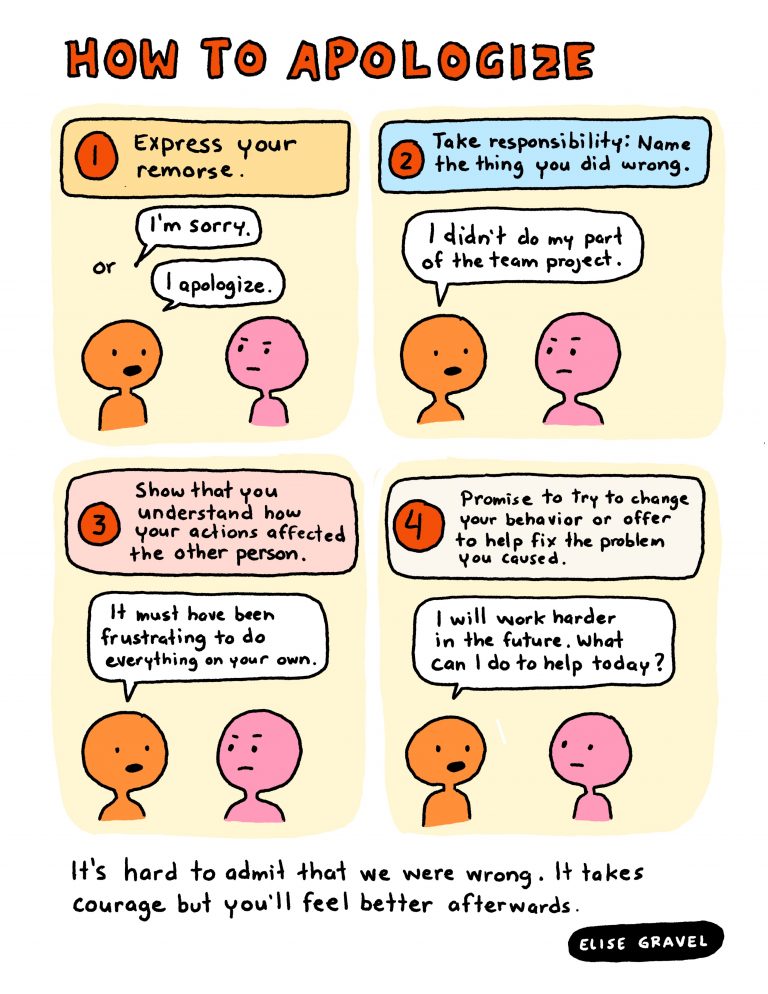 That's because accepting responsibility for our actions is often hard. It is common to avoid responsibility for short-term relief from negative emotions, but the long-term consequences can be significant.
That's because accepting responsibility for our actions is often hard. It is common to avoid responsibility for short-term relief from negative emotions, but the long-term consequences can be significant.
Though it is no easy feat, taking responsibility for your actions can be empowering and have significant positive impacts on your life. To name a few benefits, it can improve your relationships, enhance your ability to learn, and lead to you feeling more in control of your life.
In this article, I will share what it means to take responsibility for your actions, why it is crucial to do so, and some helpful tips to execute.
Contents
- What does it mean to take responsibility for your actions?
- Why is it important to take responsibility for your actions?
- 1. It improves your mental health
- 2. It strengthens your relationships
- 3. It increases your ability to learn
- 4. You'll gain a higher internal locus of control
- 5 tips for taking responsibility for your actions
- 1.
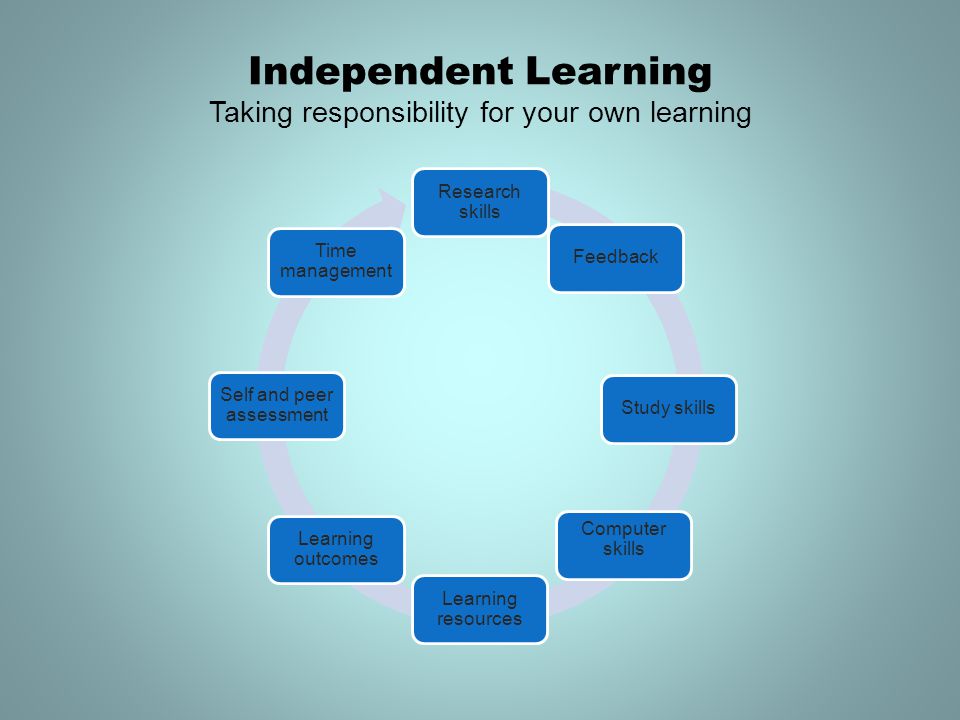 Stop blaming other people
Stop blaming other people - 2. Stop making excuses
- 3. Accept negative emotions
- 4. Act, don’t react
- 5. Practice self-compassion
- 1.
- Wrapping up
What does it mean to take responsibility for your actions?
Taking responsibility for your actions means you recognize the areas of your life that you can control and make positive changes to. It also means accepting and moving past the things you cannot control, without placing blame or excuses. Sometimes when we make a mistake, it can be difficult to own up to it and take actionable steps to resolve it. Our first reaction may be to deflect blame onto others or make excuses for the situation.
Taking responsibility for your actions empowers you to have the agency to influence your life. You are not just reacting to situations, rather you get to choose how to respond to them.
When you take responsibility for your actions you first acknowledge the issue, whether it is a mistake you made or something in your life you would like to change.
Then, you recognize what role you play in the situation, including what aspects are within your control, as well as the things you cannot change. Lastly, you implement an action plan to resolve the issue and limit the chances of it happening again in the future.
Don't Miss Out On Happiness!
Receive our 10 evidence-based tips to improve your mental health instantaneously when you need to take care of yourself!
Why is it important to take responsibility for your actions?
Taking responsibility for your actions has many benefits, even though it may be hard to do so. Here are 4 of the biggest benefits you'll get from taking responsibility of your own actions:
1. It improves your mental health
Studies show that “Developing personal responsibility positively contributes to one’s well-being, self-esteem, and psychological health by empowering individuals to take ownership over behaviors and actions”.
When you take responsibility for your actions you feel a sense of control, rather than feeling like a victim of circumstance.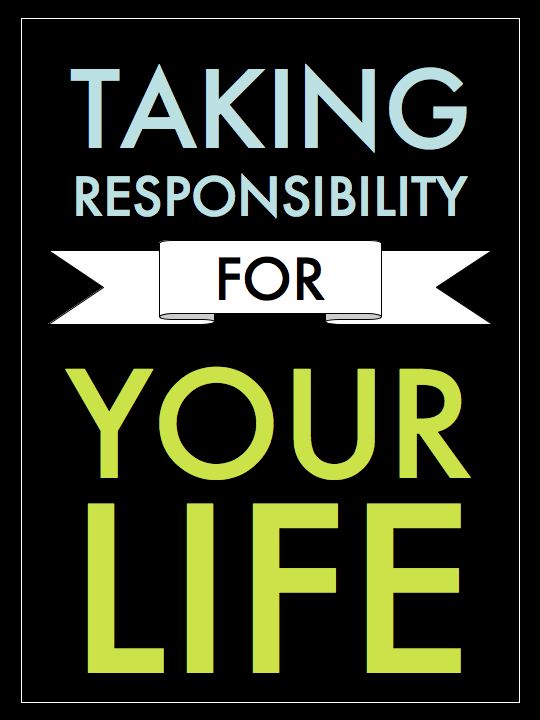
Taking responsibility for your actions involves taking an active role in problem-solving, rather than waiting or hoping situations will resolve on their own. When it comes to mental health and wellness, it is evident that there will be environmental factors that play a significant role that are beyond our control.
However, there will also be factors that you can change.
For example, say you are struggling with anxiety and want to take responsibility to improve your mental health. You can seek professional support such as therapy or consult with your general practitioner. You can explore what coping strategies work for you, such as breathing, meditation, exercise, caring for a pet, or spending time with loved ones. Alternatively, you can also try to develop a better understanding of your triggers.
All of these things are within your control and will likely lead to improved symptoms over time.
2. It strengthens your relationships
Think about your own personal relationships.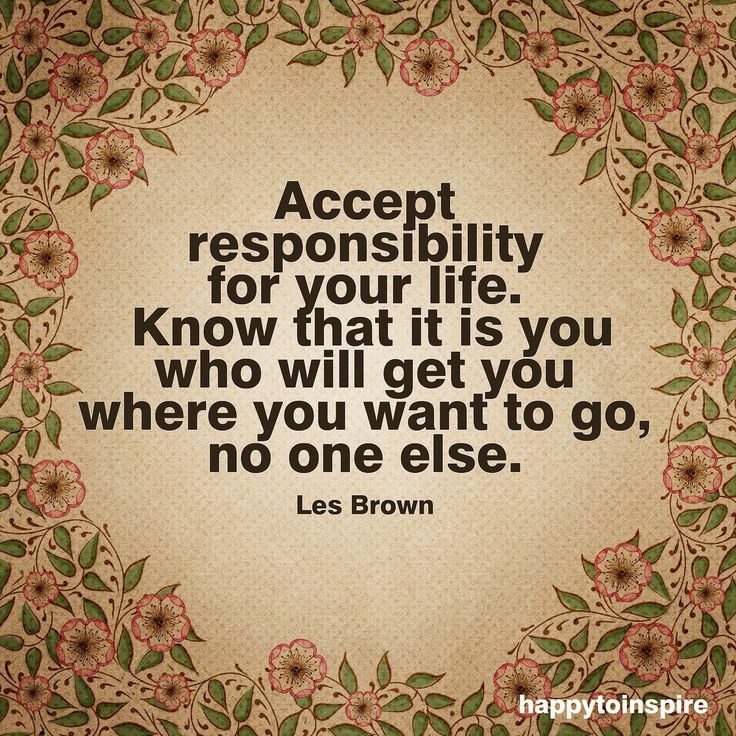 If you have a friend who does not take responsibility for their actions, places blame on others, and is constantly coming up with excuses for their actions, is this someone you would want to surround yourself with? The likely answer is no. You may view this individual as unreliable, untrustworthy, and immature.
If you have a friend who does not take responsibility for their actions, places blame on others, and is constantly coming up with excuses for their actions, is this someone you would want to surround yourself with? The likely answer is no. You may view this individual as unreliable, untrustworthy, and immature.
Taking responsibility for your actions plays a key role in relationships. When you do this, you demonstrate to your partner, friend, or family member that you are mature and willing to be honest and vulnerable.
This in turn establishes an environment where the other individual feels safe to be vulnerable and authentic, leading to relationships characterized by trust, openness, and transparency.
3. It increases your ability to learn
The relationship between personal responsibility and learning ability has been studied extensively. Research shows that being responsible for one’s own learning is essential for academic, personal, and professional growth and success.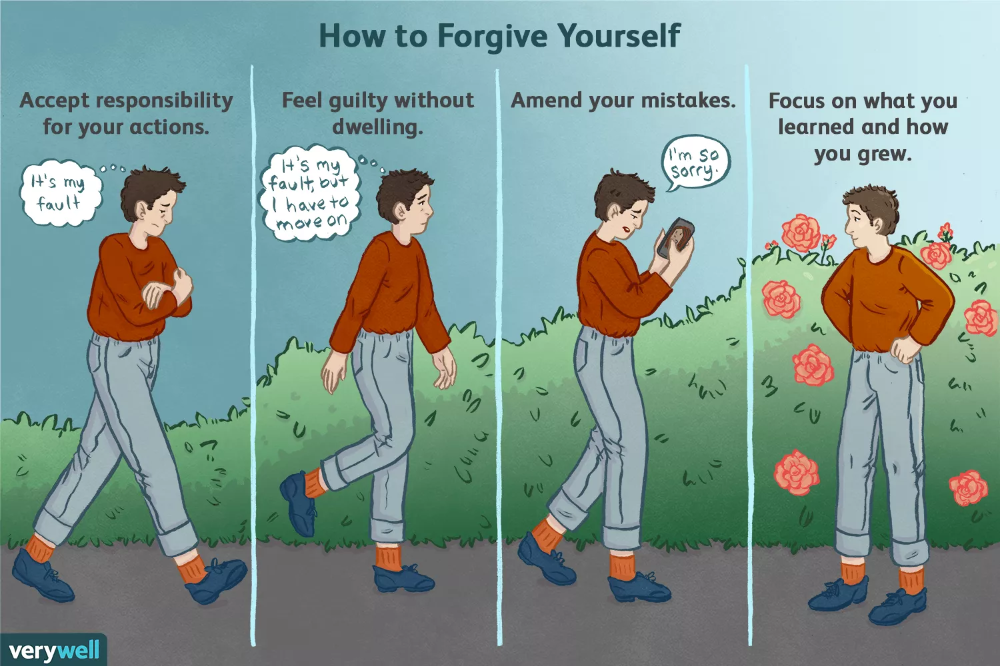 Taking responsibility in the context of study and learning means that the student recognizes that they play an active role in their learning and that their actions directly affect their peers.
Taking responsibility in the context of study and learning means that the student recognizes that they play an active role in their learning and that their actions directly affect their peers.
The ability to be a strong learner means going beyond what is provided to you and passively receiving the knowledge that is taught. Rather, a strong learner takes responsibility for their learning by having a vested interest and putting effort and engagement into their studies.
4. You'll gain a higher internal locus of control
Internal locus of control is a psychological term that means that a person believes they have a sense of control in their life, rather than their life being controlled by external factors.
If you have a higher internal locus of control, you are more likely to attribute your success (and failures) as being a result of your own actions. If you have a higher external locus of control, you may believe that your life is not within your control, and any success or failure you experience is attributed to luck or fate.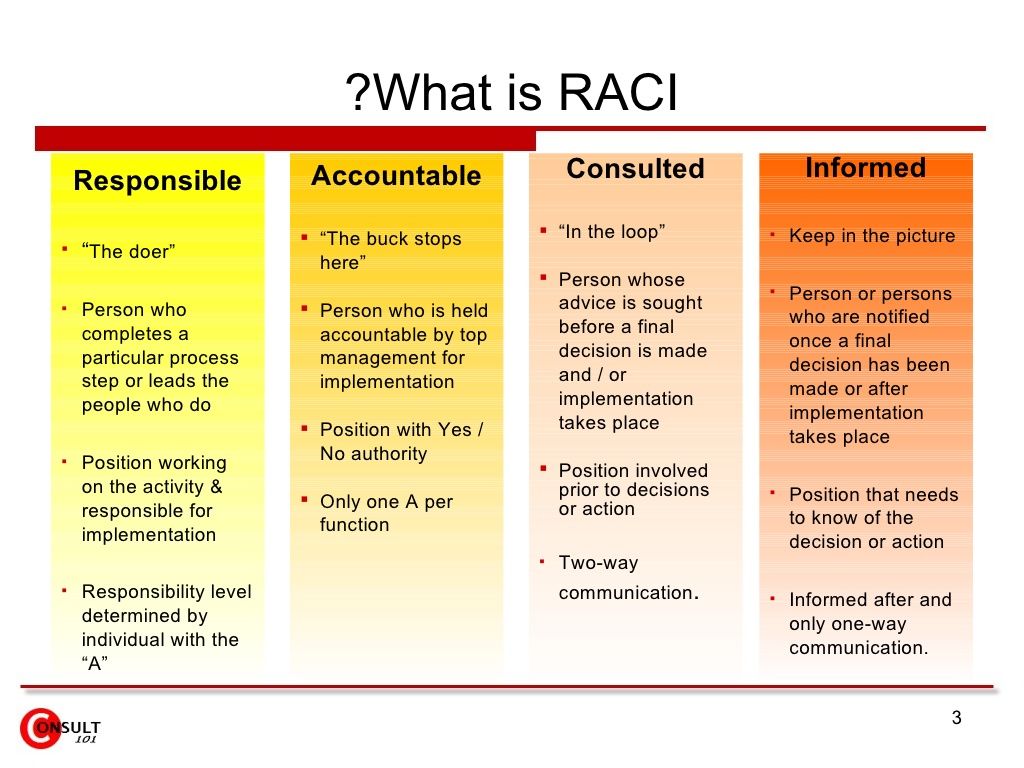
For example, let’s say there is a big exam coming up at school. An individual with a higher internal locus of control may believe that the exam results will reflect the amount of studying and preparation done, therefore they will study extra harder. On the other hand, an individual with a higher external locus of control may believe that studying is a waste of time, as the result of the exam is not within their control and is solely based on the bias of the teacher. Who do you think will be more successful in this situation?
People with an internal locus of control take responsibility for their actions as they recognize the aspects of their life that they can influence, and act accordingly. Studies show that individuals with a greater internal locus of control have higher self-confidence and are more resistant to stress.
5 tips for taking responsibility for your actions
So as it turns out, there are many reasons to take responsibility for your actions. But how do you actually do so? Here are 5 tips that will help you take responsibility.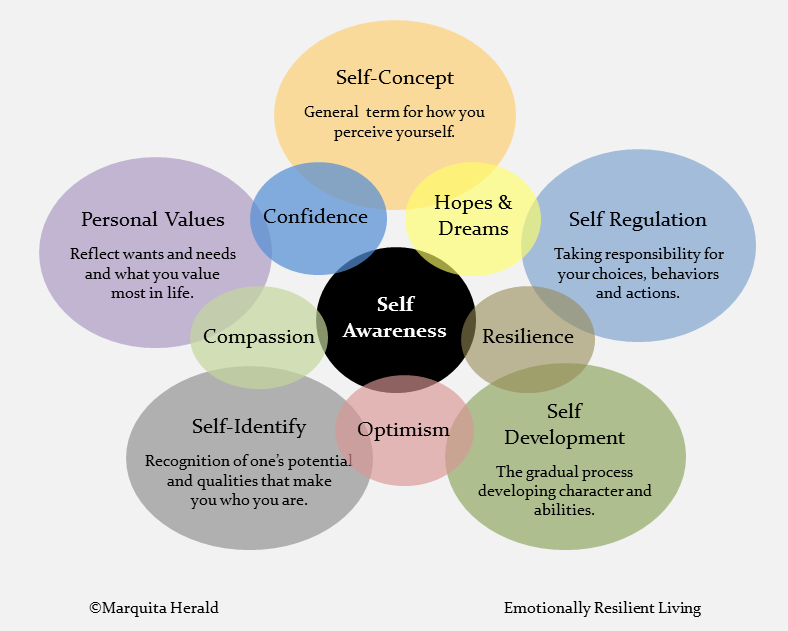
Blame is a defense mechanism. It is easier to blame others when things go wrong, or when a mistake is made rather than taking full responsibility for your actions. Just because it is easier does not mean that it is right, or that it will benefit you in the long term.
In the moment, shifting the blame may alleviate some stress and negative emotions. However, it will not resolve the issue and will likely leave you feeling guilty and emotionally drained.
It is not fair to yourself, nor is it fair to the person being wrongly blamed. Additionally, when you blame others you risk losing valuable friendships, relationships, or jobs. People may lose trust and respect for you, leaving you to feel lonely.
In the moment it can be scary to accept responsibility and take actionable steps towards change. Reminding yourself that it is the right thing to do, and that it will benefit you in the long term may help you to resist playing the ‘blame game’ and take responsibility for your actions.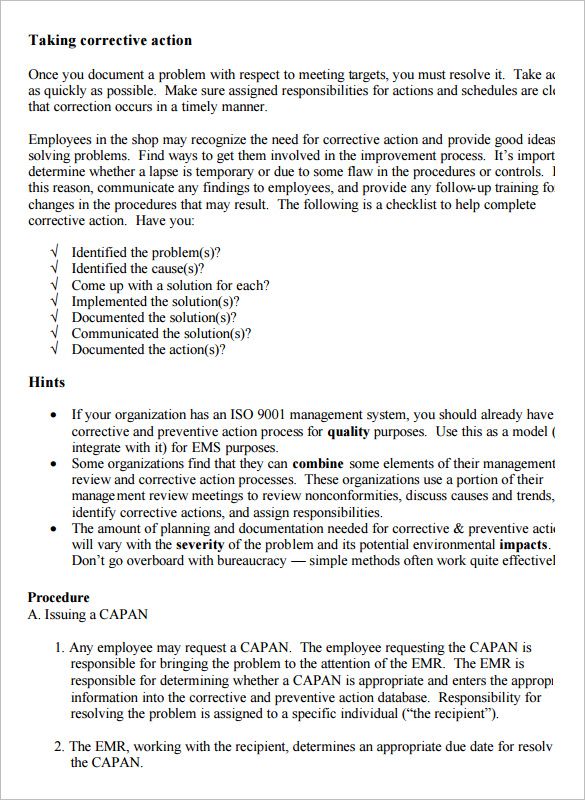
Sometimes we make excuses to rationalize why we didn’t take responsibility for our actions or to avoid situations that are difficult or uncomfortable. Making excuses is like taking the easy way out. Rather than admitting fault or mistakes, we make excuses to rationalize actions, even if they may be wrong.
For example, perhaps you were not able to finish a school assignment by the deadline. Instead of blaming the teacher for making the deadline too soon, consider the factors in your control. You could have started the assignment early enough to complete it on time, or sought out support, whether it is from a peer or teacher to assist you in completing the task.
It can be tempting to make excuses to justify our behavior, however, it is not productive, and will not benefit you in the long term.
3. Accept negative emotionsIt is inevitable that you will experience negative emotions in your life.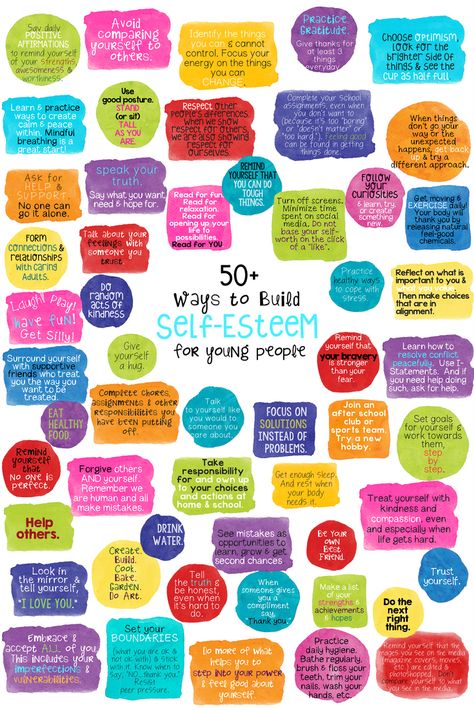 Taking responsibility for your actions can bring up feelings of discomfort, fear, and shame. These emotions can be difficult to cope with, but it is important to accept them in order to move forward.
Taking responsibility for your actions can bring up feelings of discomfort, fear, and shame. These emotions can be difficult to cope with, but it is important to accept them in order to move forward.
Practicing mindfulness can help you to sit with negative emotions rather than trying to run away from them. Avoiding negative emotions and discomfort only perpetuates it in the long term and makes it more difficult to take responsibility for our actions and move forward.
Try some of these tips to implement mindfulness during times when negative emotions are present.
4. Act, don’t reactWhen mistakes or uncomfortable situations happen, it is common for our first instinct to be defensiveness. As mentioned earlier, sometimes it is easier to deflect blame, make excuses, or run away from negative emotions. When we react to situations without thinking it through, it is likely that the response will be defensive, without resolving the issue.
It is important to take a step back and act on the situation in a way that is calm and impactful. It can be difficult to have a calm perspective during the heat of the moment, but there are some things you can do to bring yourself to a calm place, so you can move forward:
It can be difficult to have a calm perspective during the heat of the moment, but there are some things you can do to bring yourself to a calm place, so you can move forward:
- Perform a breathing exercise.
- Go for a quick walk (this article really explains how powerful this tactic really is!).
- Call a friend to talk about the situation.
Once you are in a state where you are acting and not reacting, you are better able to make informed and rational decisions in order to rectify the situation.
5. Practice self-compassionLike all humans we make mistakes, go through difficult times, and sometimes act in ways we later wish we hadn’t. Everyone experiences this and no one is perfect! Though it is important to take responsibility for our actions and make things right, it is equally as important to be kind to yourself.
For example, say you reacted badly and said hurtful things to a close friend during an argument, and now you’re beating yourself up about it.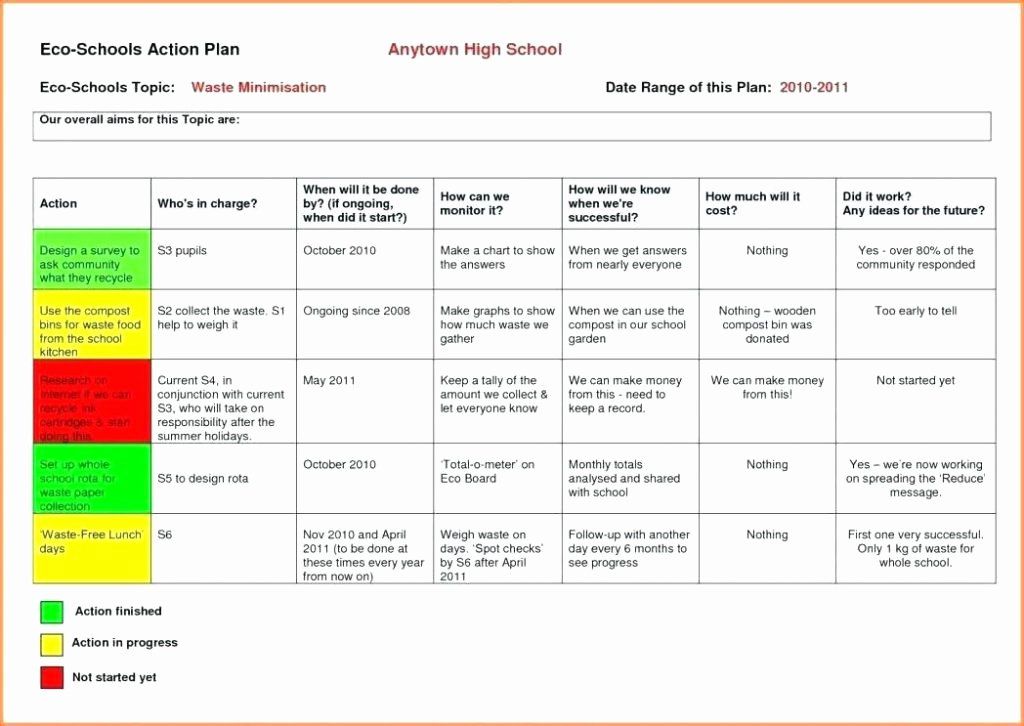 You may be ruminating over the conversation, thinking about the things you said, or should have said, and telling yourself that you are a bad person who doesn’t deserve friendship.
You may be ruminating over the conversation, thinking about the things you said, or should have said, and telling yourself that you are a bad person who doesn’t deserve friendship.
These negative thoughts and feelings are natural and valid, but they do not help the situation, and they do not leave room for self-compassion.
Imagine a friend came to you with the same situation. What would you tell them? You would probably show them compassion and say something like “That sounds like a difficult situation, and I can see that you are not happy with how you responded. Remember that everyone makes mistakes, and it will get better. What do you think you can do to fix the situation?”
Taking an approach like this allows you to forgive yourself, and show yourself kindness, while still holding yourself accountable and taking responsibility for your actions.
Get Our FREE Mental Self-Care Cheat Sheet
10 evidence-based tips to improve your mental health instantaneously when you need to take care of yourself!
Wrapping up
Taking responsibility for your actions is rarely easy, but it is worth it.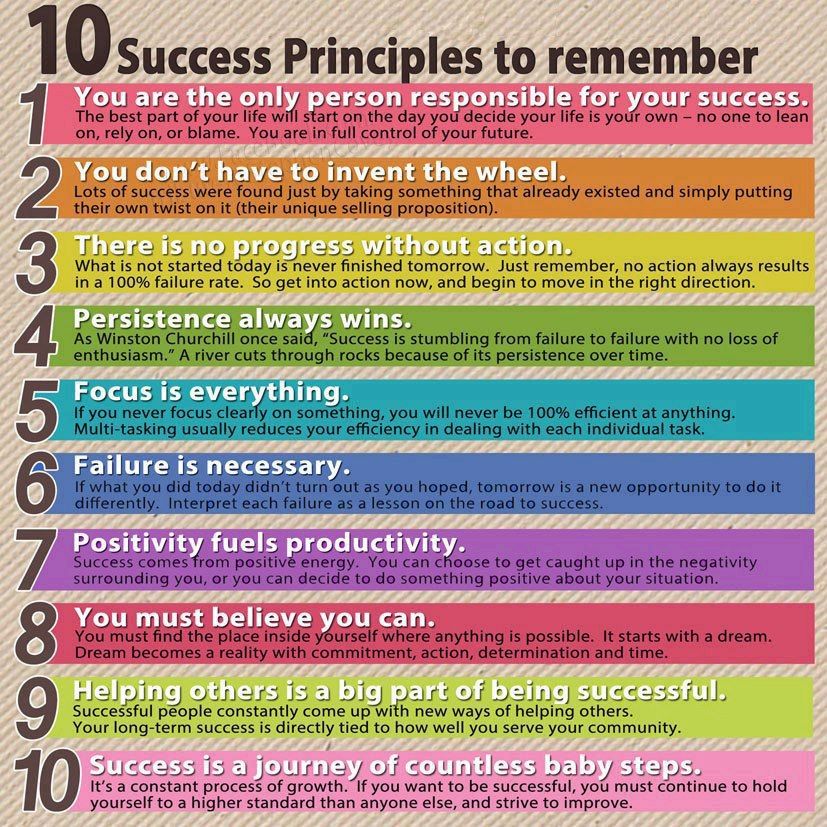 The benefits of taking responsibility outweigh the discomfort that comes with it. Mistakes are human, tough situations are unavoidable, and there will always be factors outside of our control. It is how we respond to them that is important.
The benefits of taking responsibility outweigh the discomfort that comes with it. Mistakes are human, tough situations are unavoidable, and there will always be factors outside of our control. It is how we respond to them that is important.
Do you find it hard to take responsibility for your own actions? Or do you feel like a victim of circumstance more often than not? I'd love to hear your thoughts in the comments below!
Jessie Faber
Writer
Writer, athlete, social worker, and professional thrift shopper. Born in Canada, but currently living my dream playing professional soccer in Greece. Passionate about mental health advocacy, sewing, singing, and playing guitar.
How to take responsibility for your life
October 2, 2021 Life
Learn to expand your circle of influence, define a circle of care - and new horizons will open before you.
Share
0You can listen to this article. If it's more convenient for you, turn on the podcast:
Most likely, you have heard this recommendation more than once: “Just stop whining and take life into your own hands! Everything will change abruptly, you'll see! Problems will be solved - and happiness will come.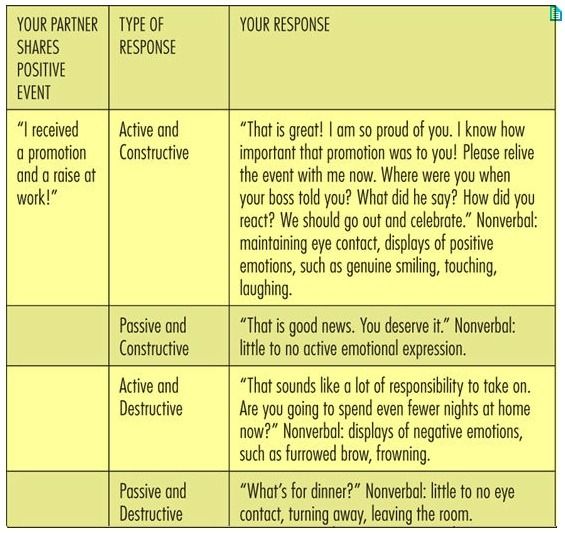
But how exactly to do this and what is generally meant by this, almost no one says. So the advice turns out to be useless, like advice in the spirit of "just don't pay attention" or "just eat right and exercise."
Understanding what it means to "take responsibility", why it is sometimes very difficult and how to finally do it.
Why you need to take responsibility
It helps to become more confident
A person who is responsible for his life understands what really depends on him and what does not, realizes the limits of his capabilities and becomes a little stronger and freer.
It helps to set goals and achieve them
When you realize that you are far from being helpless and that you can influence a lot, you get the motivation and courage to move forward and change something.
A person who does not take responsibility year after year scolds neighbors, utilities, officials, the city or country in which he lives, and believes that nothing depends on him.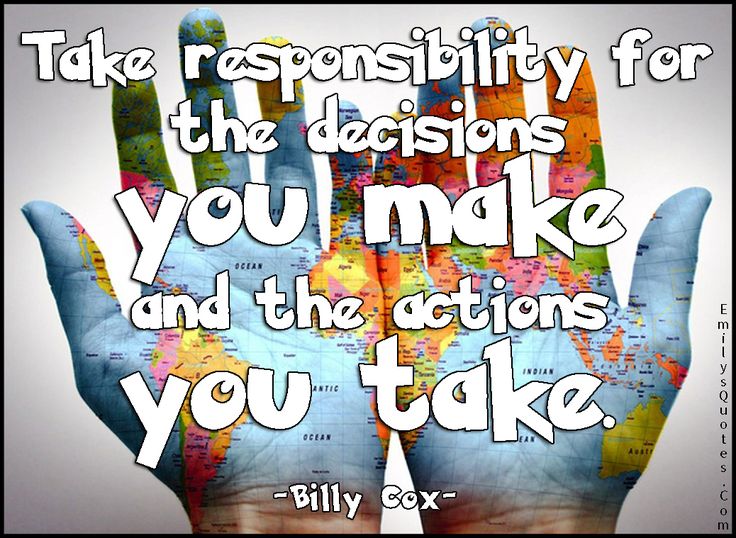
Many paths open up before the person who has taken responsibility. First, move. Secondly, try to change the situation as much as possible, at least a little: organize a subbotnik to make things cleaner, go to court and enforce your rights, create a petition and fight for legal reform. Thirdly, he can honestly admit to himself that he is not ready for active actions and changes - and consciously leave everything as it is, but already without complaints.
It helps to cope with uncertainty
A person who goes with the flow and lives with the certainty that he does not decide anything is actually very difficult. After all, then it turns out that life is absolutely unpredictable and can play with you as it pleases, and you are not able to do anything about it.
When someone takes responsibility, there is a little more certainty. Some unpleasant situations can be prevented, and in others, you can act more confidently and deal with them faster.
Let's say a person realizes that the economic situation is deteriorating and he may lose his job. Those who do not take responsibility will live in fear, complain, worry that they will be left without money, and wait in horror for how everything will end. After all, it doesn’t affect anything, it’s all a crisis, politics and a boss.
Those who do not take responsibility will live in fear, complain, worry that they will be left without money, and wait in horror for how everything will end. After all, it doesn’t affect anything, it’s all a crisis, politics and a boss.
The one who is responsible can start looking for a job, learn something new to increase their value, or get a part-time job, save some money, or at least learn how to join the labor exchange in case of emergency and receive benefits for unemployment.
This helps create a more harmonious relationship
The person who takes responsibility can choose their environment, set personal boundaries, talk about what they don't like, steer the relationship in the right direction or end it if it is not enjoyable .
The one who does not accept responsibility thinks that everything is going as it is, nothing can be done, and he simply attracts the wrong people.
Why is it so difficult to take responsibility
We confuse responsibility and control
There is an opinion that these are one and the same thing, and being responsible means controlling everything and everyone in your life.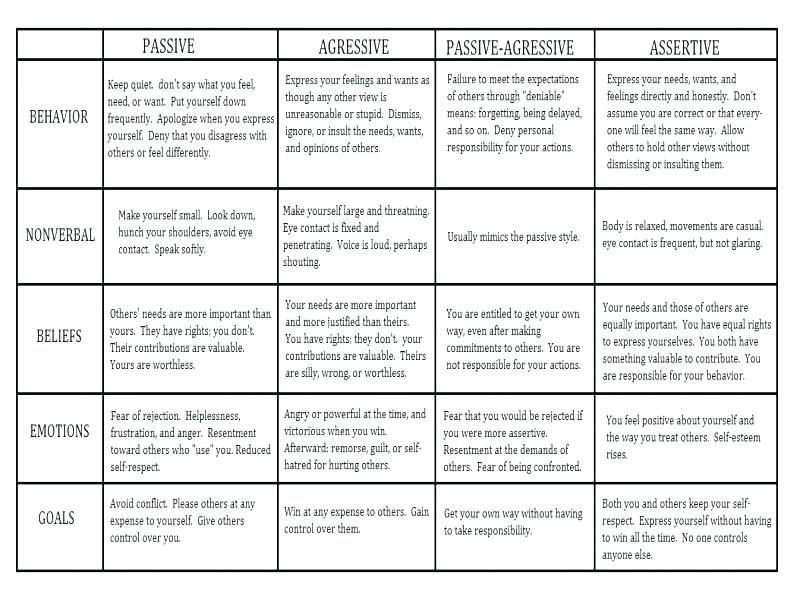 This, of course, is impossible. We have no control over the weather, oil prices or the neighbor's dog that barks at night and disturbs our sleep. As a result, the idea of responsibility seems absurd and utopian - and the person refuses it.
This, of course, is impossible. We have no control over the weather, oil prices or the neighbor's dog that barks at night and disturbs our sleep. As a result, the idea of responsibility seems absurd and utopian - and the person refuses it.
We confuse responsibility and guilt
It seems like “taking responsibility” is the same as admitting that you yourself are to blame for all your failures. And no one wants to feel guilty, it's unpleasant. Therefore, a person goes on the defensive and takes this position: “I’m not to blame for anything, that’s all they are - bad heredity, stupid ecology, huge traffic jams, corrupt officials, mercantile women and the roads are still terrible.” And, of course, does not try to change anything.
We suffer from learned helplessness
Scientist Martin Seligman wrote about this condition back in the 1970s. Because of it, it just seems to us that we are powerless to change something in our life, because we do not influence anything.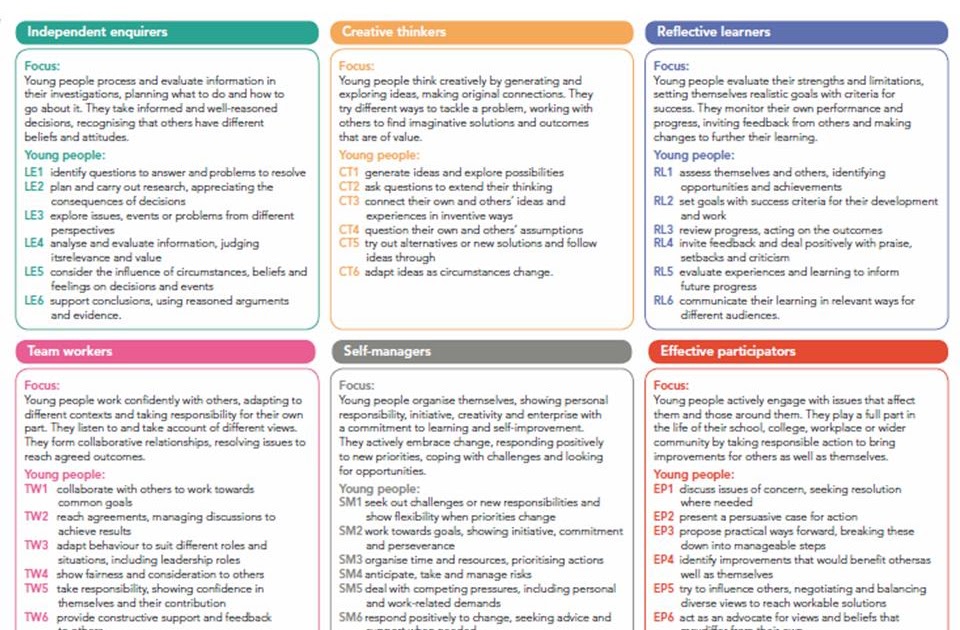
Where this state comes from is not exactly known. There are two opinions: this is an innate quality, or, conversely, acquired due to not very correct upbringing or a series of past failures.
For example, during experiments, people were forced to listen to unpleasant sounds and could not avoid it. As a result, they lost motivation and no longer tried to escape from uncomfortable conditions.
What does it mean to take responsibility
This certainly does not mean that you need to declare yourself omnipotent and try to control everything and everyone. Or, on the contrary, sprinkle ashes on your head and assume that you are to blame for every trouble that has happened to you.
To be responsible is to understand what you can and cannot do, to be aware of and accept the consequences of your actions or inaction, and to take an active position whenever possible.
Stephen Covey, best-selling author of The 7 Habits of Highly Effective People, expressed this idea with the Two Circle Theory: Influence and Caring.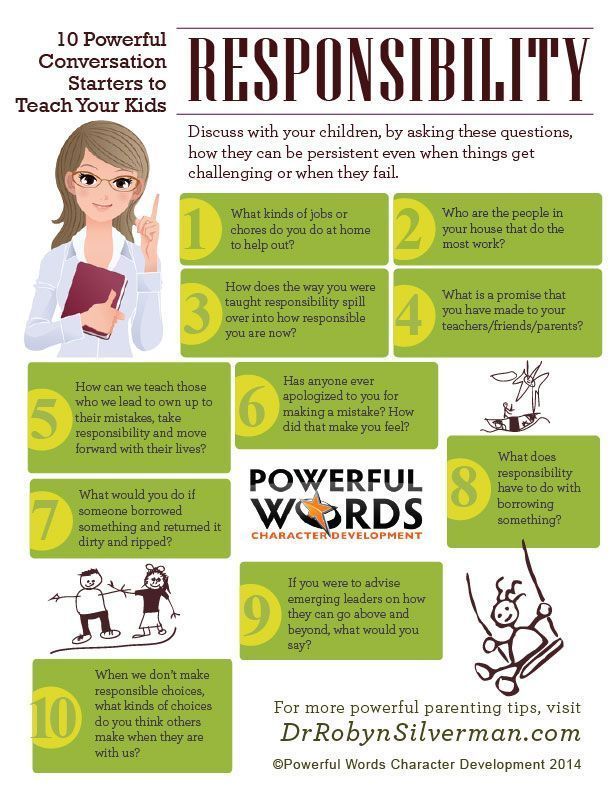
The circle of influence is the people and events that a person can influence. The circle of care is everything that affects a person. In order to live better and more joyfully, one should try to expand the first and reduce the second.
For example, a person is looking for a job, sends out a resume, but no one answers him. It turns out that his circle of influence is small: all that remains for him is to view vacancies and leave feedback. And the circle of concern, on the contrary, is large: it is completely in the power of fate and HR specialists.
If this person wants to take responsibility and expand his circle of influence, he can, for example, not post a resume on a site with vacancies, but send it to the company's corporate mail. He can call Human Resources and see if his letter has been reviewed. He can turn to a career consultant who will correct his resume and tell you in which direction to move.
How to take responsibility
Try not to blame
Recognize that blaming yourself or others is not constructive.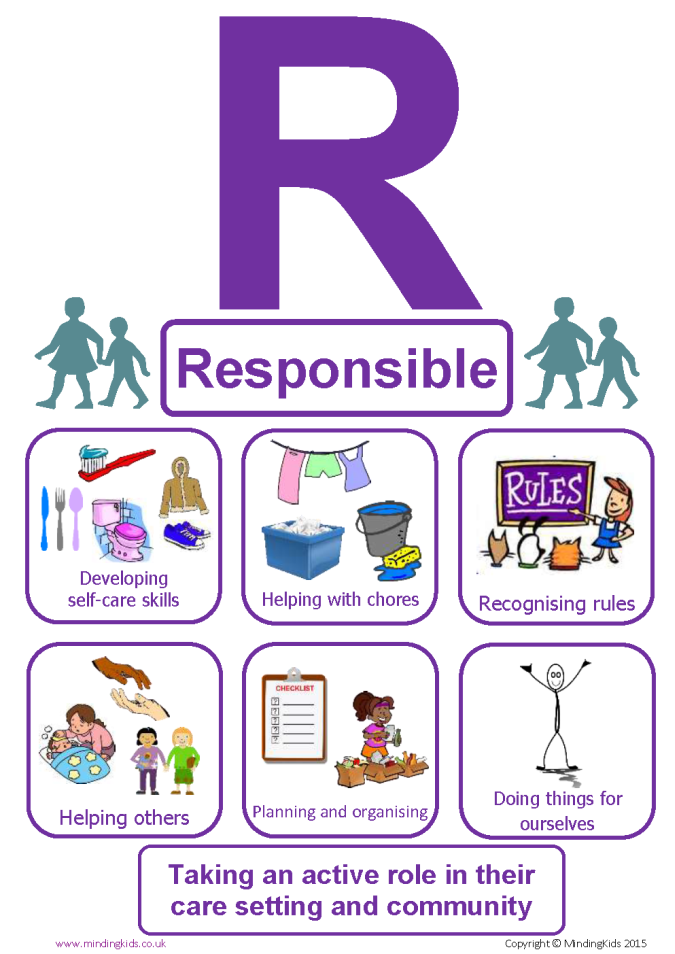 This position allows you to remain inactive and saves you from disappointments, because if you do not try to change anything, you will not fail and you will not be hurt by it. But at the same time, it closes the path to development, good work, interesting projects and acquaintances, and unexpected turns.
This position allows you to remain inactive and saves you from disappointments, because if you do not try to change anything, you will not fail and you will not be hurt by it. But at the same time, it closes the path to development, good work, interesting projects and acquaintances, and unexpected turns.
Yes, it is true that people around you are to blame for something. Parents did not give a good start and formed complexes in the child. The workers are patching up the asphalt and that's why there are terrible traffic jams on the way to the office in the morning. The boss evaluates your merits biasedly and promotes not you, but his friend, up the career ladder.
But if you focus on what others are doing, and not on what you can do yourself, you are marking time and cannot change your life for the better.
Define your circle of influence
Just be honest with yourself, don't underestimate or exaggerate your abilities. Write down everything that you can really influence in each specific situation, and what you can’t at all.
We can't cancel the rain, but we can buy a cool raincoat and rubber boots that will make it more comfortable to leave the house. Or find a remote job to stay warm and cozy in bad weather.
We cannot change the behavior of the person who offends us, but we can distance ourselves from him.
Set a goal for yourself
In the job and resume mailing example, the goal could be, say, contacting an HR consultant, finding direct company contacts, or making a phone call.
In a situation where you don't like where you live, the goal may be to move to another area, city, or even country. Or, on the contrary, an attempt to find interesting institutions, events and locations around you that will reconcile you with your place of residence and help you feel better. Yes, traffic jams are terrible and the view from the window is not very good, but what magic croissants are baked in a coffee shop around the corner and what a picturesque square just two bus stops from the house.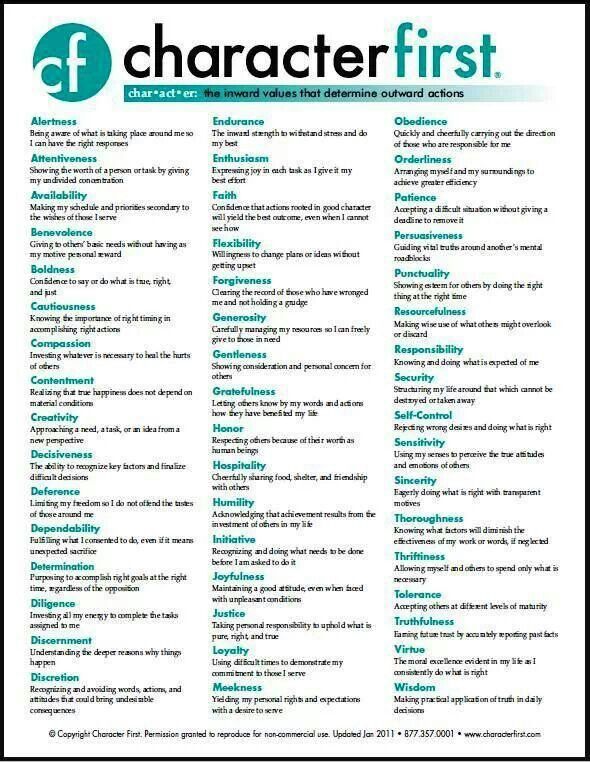
Take action
Once you achieve at least a small goal, you will become more confident, better understand what you are capable of, which means you can overcome the feeling of helplessness and make your life more comfortable and fulfilling.
Read also 🧐
- 3 ways to change your life for the better and enjoy every day
- How to overcome the fear of the unknown and quickly achieve your goals
- Do you want to change your life for the better? Breathe Deeply
- To change your life, talk about it differently
Responsibility for oneself - Psychologos
October 01, 2022, 21:40
Rocky Balboa movie
Responsibility for oneself - for one's life choices, actions, thoughts, feelings, in general - life and destiny.
Such an amazing creature as a man is capable of living irresponsibly, including to himself: destroying his health, his opportunities, his development and his future.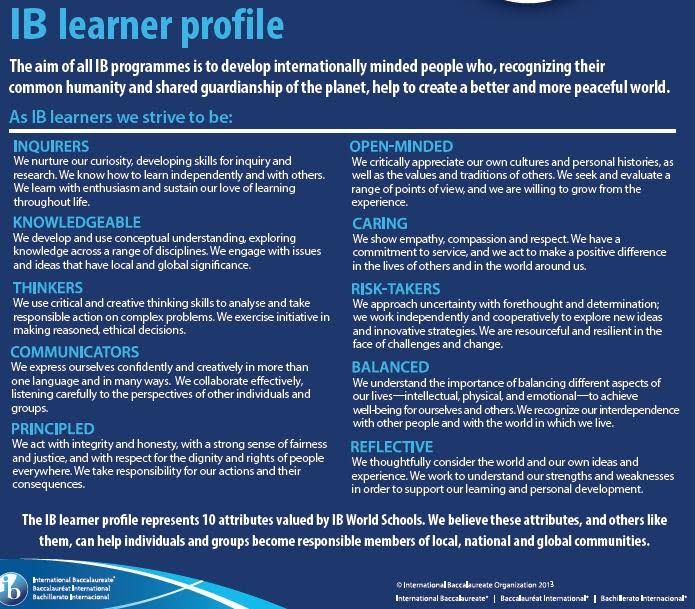 Therefore, responsible people think over their interests and their future, determine their goals and objectives, after which they ask themselves for their own obligations.
Therefore, responsible people think over their interests and their future, determine their goals and objectives, after which they ask themselves for their own obligations.
To the extent that I tell others by responsibility for myself: "You don't have to worry about me, I will solve my problems myself", this is a manifestation of social responsibility (or irresponsibility). If a person takes responsibility for himself - to himself, this is his personal responsibility.
The one who does not take responsibility for his life on himself, shifting it to others - needs the approval and attention of others, is not a self-sufficient person. See self-sufficiency
Responsibility for oneself develops in one who is used to always seeing his choices. Whether I work here or at another job, quarrel or be friends with my boss or colleagues, stay here or quit - all choices are considered. Should I meet with this person or stop, have a difficult conversation with him or later, be offended by him or is it inappropriate - someone who is used to seeing his choices can be responsible for his life and is not in the position of a Victim.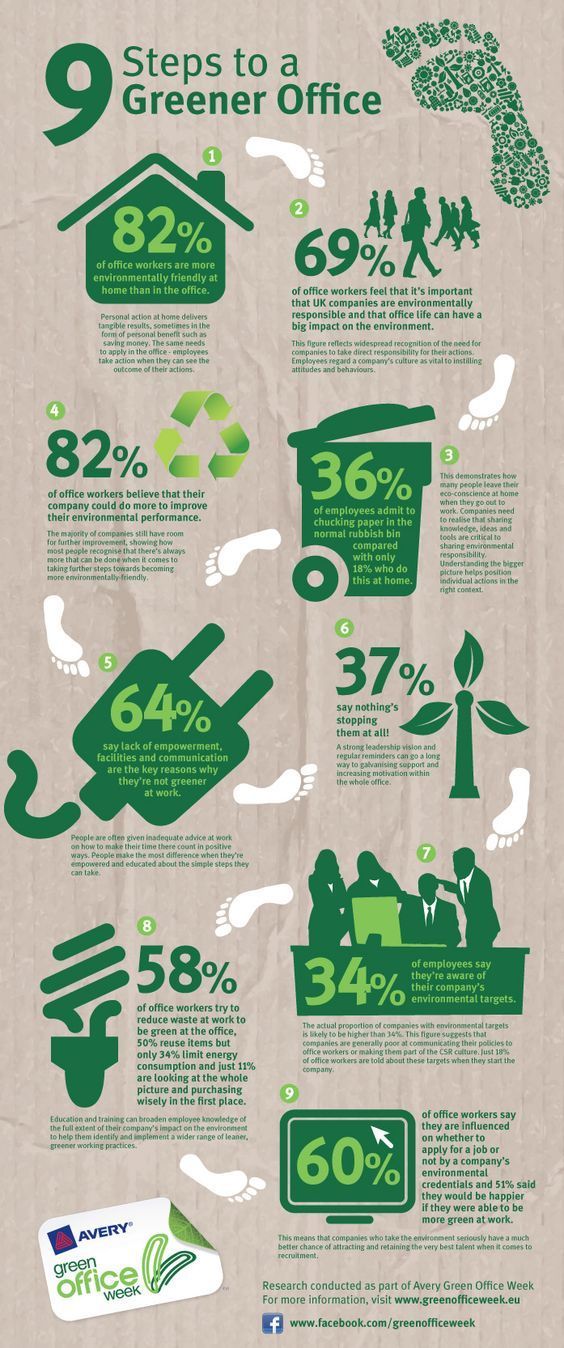
Responsibility and self-care
If a person is unable to take care of himself, he is unlikely to be able to help other people. A responsible person always takes reasonable care of himself - at least as an instrument that still has a lot to do in life. See Responsibility and self-care Responsibility and motivators - "hypnotists" with clackers playing along in the hall. :) And the "vulgar" striving for the "center of attention" is the main social motive of successful people!
2
replies
Guest, January 26, 2020, 8:33 PM
Where do they succeed all the time, these successful ones?
1
reply
Guest, April 13, 2020 at 5:38 pm
To power over others.
Guest, January 29, 2021, 09:22 AM
Wanting attention is good, but chasing it can lead to infantilism, while only really mature people can take responsibility.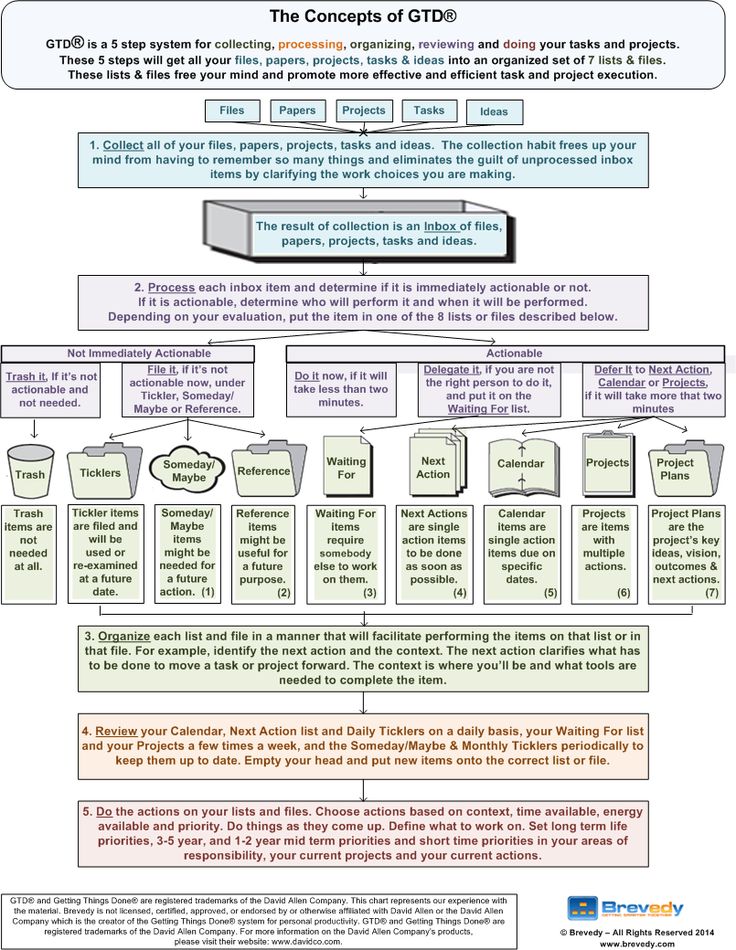 Or maybe you just justify your arguments by not wanting to take responsibility;)
Or maybe you just justify your arguments by not wanting to take responsibility;)
1
reply
Guest, September 18, 2021, 07:29 AM
Are there no black swans?
Related content:
Oct 01 2022
What is responsibility and a responsible approach
Responsibility is the ability of a subject (a person, a group of people or an organization) to adequately answer for what is entrusted to him or for what he has taken on himself.
8Read more
06 Dec. 2016
Find yourself
At the moment it has become very fashionable to engage in self-discovery. Look deeper into yourself and discover your true desires. Some cunning "specialists" very actively indulge these desires and promise the suffering to help them in their search: to immerse them in themselves and discover countless treasures there. My friends, I can believe that someone is able to immerse you in yourself, I can even believe that you are able to linger in yourself there and search for treasures.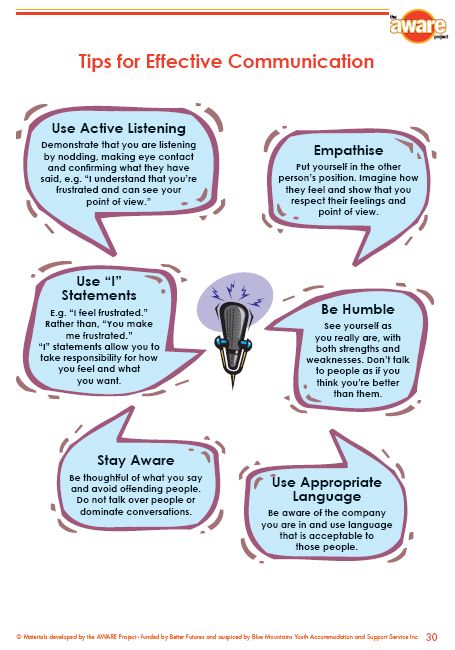 But I don’t believe in life that you will find there something that you didn’t put there, or your parents didn’t put there, or those people with whom you communicated for a long time and closely.
But I don’t believe in life that you will find there something that you didn’t put there, or your parents didn’t put there, or those people with whom you communicated for a long time and closely.
19Read more
Jan 01 2006
Responsibility and taking care of yourself
Do not hang someone else's responsibility on yourself. Don't blame others for your problems. Carefully take care of yourself in order to successfully take care of others!
6Read more
Jan 01 2001
Self-sufficiency
Self-sufficiency is when you have enough of yourself and you are not afraid of loneliness.
36Read more
Oct 01 2022
Types of liability
Liability as an objective circumstance has different types, forms and directions. The main types of responsibility are divided depending on the answer to the question "To whom or what is responsibility".